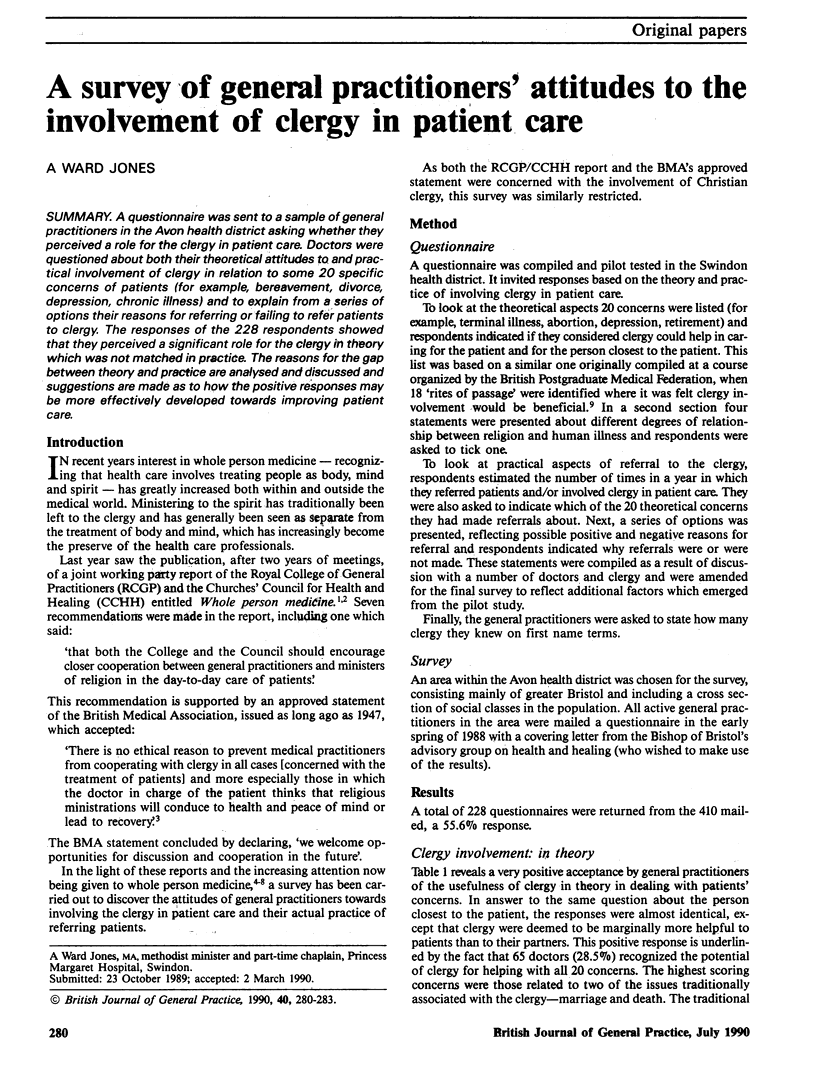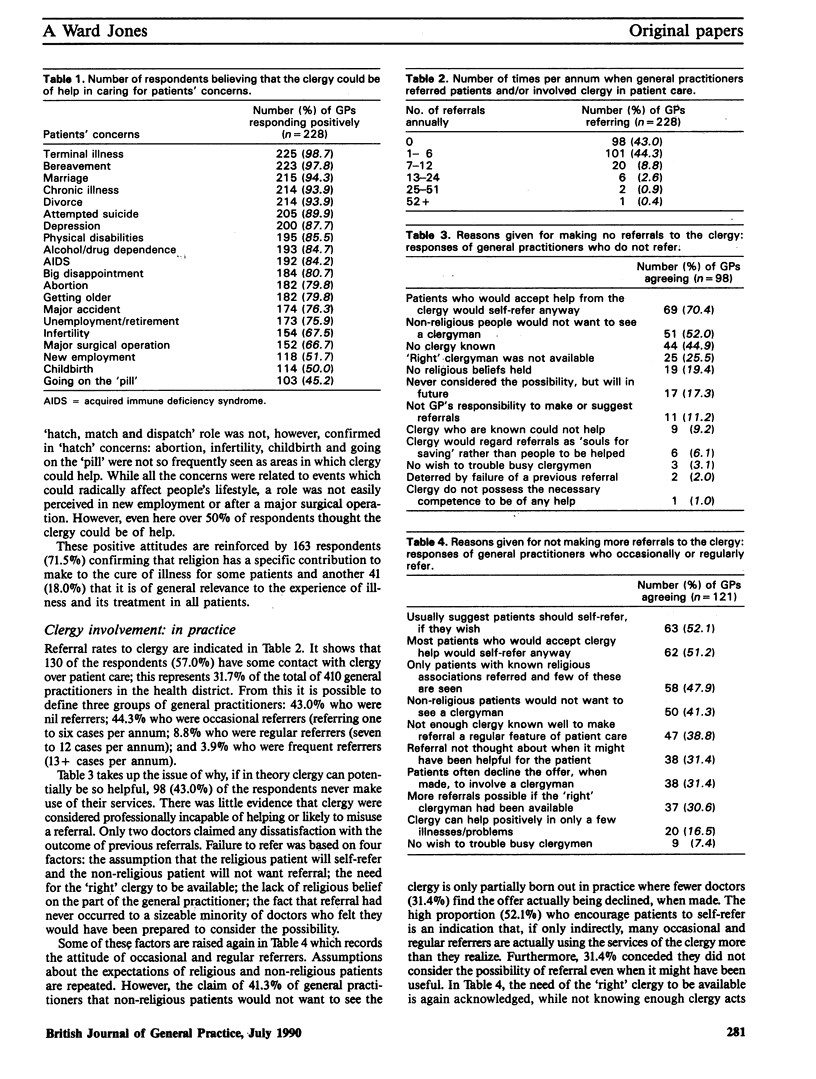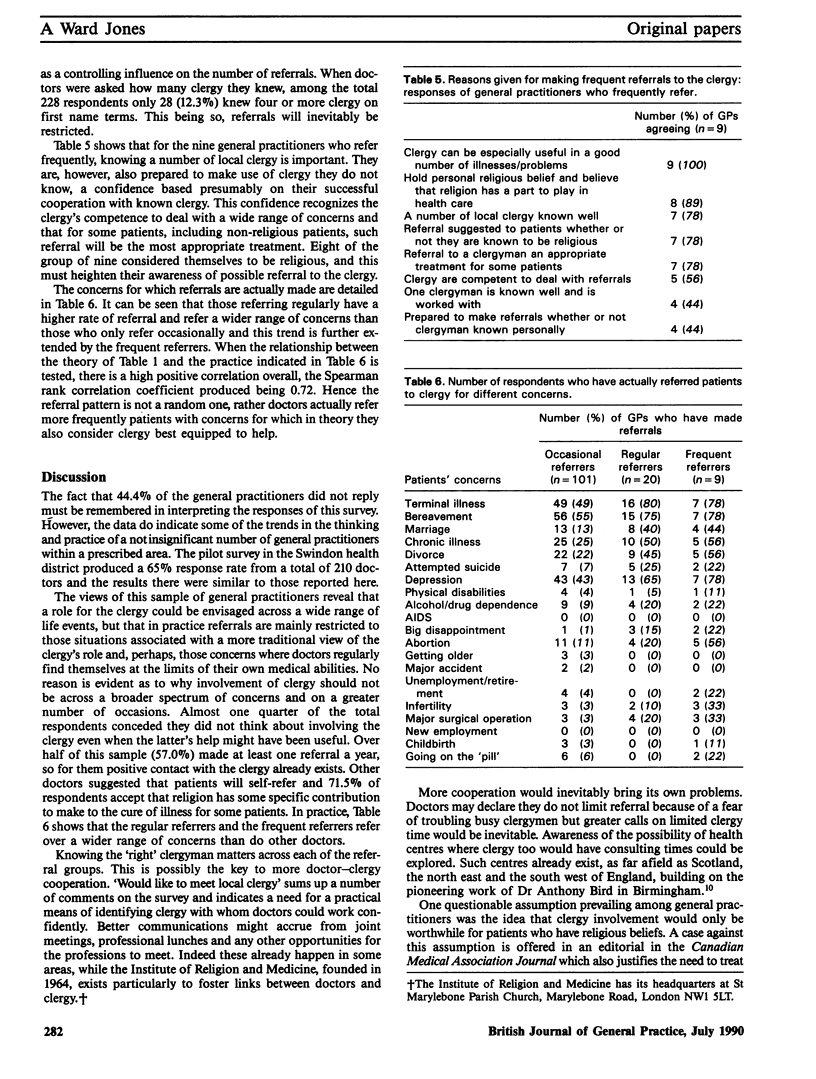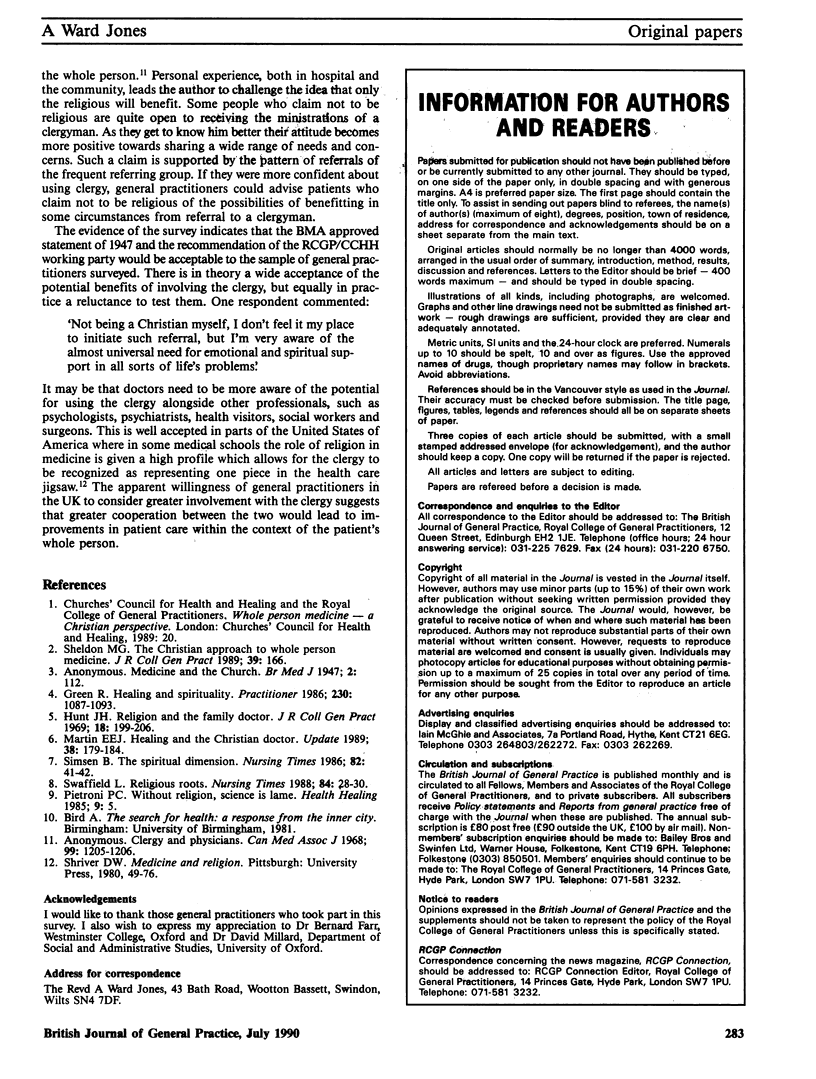Abstract
A questionnaire was sent to a sample of general practitioners in the Avon health district asking whether they perceived a role for the clergy in patient care. Doctors were questioned about both their theoretical attitudes to and practical involvement of clergy in relation to some 20 specific concerns of patients (for example, bereavement, divorce, depression, chronic illness) and to explain from a series of options their reasons for referring or failing to refer patients to clergy. The responses of the 228 respondents showed that they perceived a significant role for the clergy in theory which was not matched in practice. The reasons for the gap between theory and practice are analysed and discussed and suggestions are made as to how the positive responses may be more effectively developed towards improving patient care.
Full text
PDF



Selected References
These references are in PubMed. This may not be the complete list of references from this article.
- Green R. Healing and spirituality. Practitioner. 1986 Dec;230(1422):1087–1093. [PubMed] [Google Scholar]
- Hunt J. H. Religion and the family doctor. J R Coll Gen Pract. 1969 Oct;18(87):199–206. [PMC free article] [PubMed] [Google Scholar]
- Sheldon M. G. The Christian approach to whole-person medicine. J R Coll Gen Pract. 1989 Apr;39(321):166–166. [PMC free article] [PubMed] [Google Scholar]
- Simsen B. The spiritual dimension. 1986 Nov 26-Dec 2Nurs Times. 82(48):41–42. [PubMed] [Google Scholar]
- Swaffield L. Spiritual care. Religious roots. Nurs Times. 1988 Sep 14;84(37):28–30. [PubMed] [Google Scholar]


